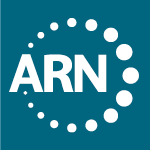What Does A Gerontological Rehabilitation Nurse Do?
The Association of Rehabilitation Nurses (ARN) developed this gerontological rehabilitation nurse role description to identify and clarify the role of rehabilitation nurses who care for geriatric clients and to promote a high degree of professionalism in keeping with the established Scope and Standards of Rehabilitation Nursing Practice.
Gerontological rehabilitation nursing is a specialty practice that focuses on the unique requirements of elderly rehabilitation clients. Elderly clients can be categorized into the following groups: the young old (65 through 74 years of age), the middle old (75 through 84 years of age) and the oldest old, or frail elderly (ages 85 and above) (Schrier, 1990). Currently, one in every eight Americans is older than 65 years of age. Older adults (65+) numbered 38.9 million in 2008, an increase of 4.5 million (13%) in the past 12 years. Experts predict this number to increase to 55 million by 2020. The frail older adults will be the fastest growing age group in the country. (Jacelon, 2011) The older a population is, the less homogeneous it is; therefore, more diverse care is required to meet the needs of the individuals within the population. Consequently, gerontologic clients warrant special consideration. In light of these statistics, rehabilitation nurses need to be prepared to meet the demands of an aging society.
Gerontological rehabilitation nurses consider the normal age-related changes and the functional limitations brought about by illness or injury in older people when they help an individual develop a plan of care. Specific disabling conditions and their concomitant medical issues dictate specific rehabilitation nursing interventions and techniques.
Culture and Education
It is important for the gerontological rehabilitation nurse to understand and elicit the beliefs, attitudes, values, and goals of older adults relating to their lives, illnesses, and health states in order to provide culturally appropriate care.
Goal
Gerontological rehabilitation nurses use a holistic approach in the assessment and provision of services to older adult clients. Helping older adults achieve their optimal level of physical, mental, and psychosocial well-being while providing a safe and secure environment is the primary goal of the gerontological rehabilitation nurse.
Settings
Gerontological rehabilitation nursing services are provided in settings throughout the continuum of care including hospital-based rehabilitation units, freestanding rehabilitation hospitals, hospital-based and free standing skilled nursing facilities, acute care units, subacute units, long-term care facilities, residential care facilities, home health agencies, private and agency clinics, and governmental agencies. Nurses with advanced education and certification also can practice independently as gerontological nurse practitioners or clinical nurse specialists. Other nurses practice gerontological rehabilitation nursing by teaching or conducting research at the nursing school or at the university level.
Standards
Gerontological rehabilitation nurses adhere to the established Standards and Scope of Rehabilitation Nursing Practice as published by the Association of Rehabilitation Nurses. The Specialty Practice of Rehabilitation Nursing Core Curriculum provides a comprehensive guide to rehabilitation nursing with a section dedicated to Gerontological Nursing. ARN position statements are available for guidance and information on specific rehabilitation issues.
Roles and Duties of the Gerontological Rehabilitation Nurse
The gerontological rehabilitation nurse practices in a variety of roles, including, but not limited to, those outlined below.
Advocate
The gerontological rehabilitation nurse advocates for the rights of older persons and works to dispel the myths of aging.
Clinical Practitioner
The gerontological rehabilitation nurse demonstrates clinical expertise in the care provided to aging adults. This expertise includes assessing and identifying problems; planning, intervening in, and evaluating care; and participating in the interdisciplinary plan of care.
Educator
The gerontological rehabilitation nurse educator promotes activities that lead to healthy aging and prevent disability and also provides individualized education for clients and their families. The gerontological rehabilitation nurse is responsible for continually updating his or her knowledge base through in-service education, continuing education, or formal secondary education and training. Networking with other gerontological rehabilitation nurses to share ideas and experiences also expands the professional practice and knowledge base. The gerontological rehabilitation nurse also has a role in educating the public about issues related to aging by giving presentations and by publishing articles on related topics.
Manager
The gerontological nurse manager uses management skills when providing for patient care in a variety of hospital and community settings. The specialized skills and knowledge required for a management position include maintaining up-to-date information about federal and state regulatory statutes as well as information related to funding for elder care programs. The gerontological rehabilitation nurse manager must be proficient in the areas of quality assurance and quality improvement and must be familiar with the requirements of other accrediting bodies such as the Joint Commission on Accreditation of Healthcare Organizations and the Commission on Accreditation of Rehabilitation Facilities.
Consultant
The gerontological rehabilitation nurse consultant supports other healthcare practitioners who provide geriatric services. The consultant offers guidance in developing programs such as those on pressure ulcer prevention and care and on clinical issues such as Alzheimer's disease that typically pertains to an aging population.
Researcher
The gerontological rehabilitation nurse researcher conducts research to generate new knowledge related to gerontological rehabilitation nursing care and clients and communicates relevant research through presentations at continuing education programs and by writing articles for professional publications.
References
Schrier, R.W. (1990). Geriatric Medicine. Philadelphia: W.B. Saunders Company.
Jacelon, Cynthia S. (Ed.). (2011). The Specialty Practice of Rehabilitation Nursing: A Core Curriculum (6th ed.), Glenview, IL: Association of Rehabilitation Nurses.
Association of Rehabilitation Nurses (2014). ARN Competency Model for Professional Rehabilitation Nursing. Chicago, IL: Author.
Association of Rehabilitation Nurses (2014). Standards & Scope of Rehabilitation Nursing Practice (6th Ed.). Chicago, IL.
This role description was originally developed by the Gerontology Special Interest Group of the Association of Rehabilitation Nurses in 2008. Subsequent revisions were made in 2011, 2015.

